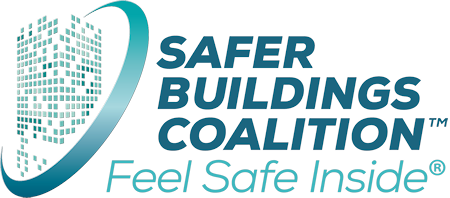|
Please click on the links below for the Access and Fuel letters from the DHS Cybersecurity and Infrastructure Security Agency (CISA), regarding COVID-19. These may be used to help facilitate access to your telecom infrastructure and systems.
Please note that the NCC* provides these letters as a courtesy to help communications providers access their facilities as needed to maintain continuity of service. That said, according to the NCC, state/local authorities retain final discretion on matters of local public safety, access and related issues. Also, the COVID situation is unprecedented so the reaction of local emergency authorities to the letters may be difficult to predict, particularly in states with few hurricanes and other emergencies for which DHS has issued similar letters.

The Safer Buildings Coalition recognizes the challenges of keeping Critical Infrastructure Operations intact. This means the workforce required to maintain our infrastructure must be permitted to perform these essential duties.
The US Department of Homeland Security has provided guidance on the definition of the ESSENTIAL CRITICAL INFRASTRUCTURE WORKFORCE.
We understand that, due to an abundance of caution, Law Enforcement and Security personnel may challenge workers on the road or in public spaces based on Federal, State or Local lockdowns.
Tools are provided here that your staff can print and carry to show proof that their function is essential.
The DHS Resources are here:
The following list is partial - visit the site above for the most up-to-date expanded coverage of this topic.
LAW ENFORCEMENT, PUBLIC SAFETY, FIRST RESPONDERS
Goes without saying...
PUBLIC WORKS
- Workers who support the operation, inspection, and maintenance of essential public works facilities and operations, including bridges, water and sewer main breaks, fleet maintenance personnel, construction of critical or strategic infrastructure, traffic signal maintenance, emergency location services for buried utilities, maintenance of digital systems infrastructure supporting public works operations, and other emergent issues
COMMUNICATIONS AND INFORMATION TECHNOLOGY
Communications:
- Maintenance of communications infrastructure- including privately owned and maintained communication systems- supported by technicians, operators, call-centers, wireline and wireless providers, cable service providers, satellite operations, undersea cable landing stations, Internet Exchange Points, and manufacturers and distributors of communications equipment
- Workers who support radio, television, and media service, including, but not limited to front line news reporters, studio, and technicians for newsgathering and reporting
- Workers at Independent System Operators and Regional Transmission Organizations, and Network Operations staff, engineers and/or technicians to manage the network or operate facilities
- Engineers, technicians and associated personnel responsible for infrastructure construction and restoration, including contractors for construction and engineering of fiber optic cables
- Installation, maintenance and repair technicians that establish, support or repair service as needed
- Central office personnel to maintain and operate central office, data centers, and other network office facilities
- Customer service and support staff, including managed and professional services as well as remote providers of support to transitioning employees to set up and maintain home offices, who interface with customers to manage or support service environments and security issues, including payroll, billing, fraud, and troubleshooting
- Dispatchers involved with service repair and restoration
Information Technology:
- Workers who support command centers, including, but not limited to Network Operations Command Center, Broadcast Operations Control Center and Security Operations Command Center
- Data center operators, including system administrators, HVAC & electrical engineers, security personnel, IT managers, data transfer solutions engineers, software and hardware engineers, and database administrators
- Client service centers, field engineers, and other technicians supporting critical infrastructure, as well as manufacturers and supply chain vendors that provide hardware and software, and information technology equipment (to include microelectronics and semiconductors) for critical infrastructure
- Workers responding to cyber incidents involving critical infrastructure, including medical facilities, SLTT governments and federal facilities, energy and utilities, and banks and financial institutions, and other critical infrastructure categories and personnel
- Workers supporting the provision of essential global, national and local infrastructure for computing services (incl. cloud computing services), business infrastructure, web-based services, and critical manufacturing
- Workers supporting communications systems and information technology used by law enforcement, public safety, medical, energy and other critical industries
- Support required for continuity of services, including janitorial/cleaning personnel
TRANSPORTATION AND LOGISTICS
- Employees of firms providing services that enable logistics operations, including cooling, storing, packaging, and distributing products for wholesale or retail sale or use.
OTHER COMMUNITY-BASED GOVERNMENT OPERATIONS AND ESSENTIAL FUNCTIONS
- Workers that maintain digital systems infrastructure supporting other critical government operations
- Workers at operations centers necessary to maintain other essential functions
- Workers to ensure continuity of building functions
- Security staff to maintain building access control and physical security measures
CRITICAL MANUFACTURING
- Workers necessary for the manufacturing of materials and products needed for medical supply chains, transportation, energy, communications, food and agriculture, chemical manufacturing, nuclear facilities, the operation of dams, water and wastewater treatment, emergency services, and the defense industrial base.
FULL CATEGORY LIST:
- HEALTHCARE / PUBLIC HEALTH
- LAW ENFORCEMENT, PUBLIC SAFETY, FIRST RESPONDERS
- FOOD AND AGRICULTURE
- ENERGY
- WATER AND WASTEWATER
- TRANSPORTATION AND LOGISTICS
- PUBLIC WORKS
- COMMUNICATIONS AND INFORMATION TECHNOLOGY
- OTHER COMMUNITY-BASED GOVERNMENT OPERATIONS AND ESSENTIAL FUNCTIONS
- CRITICAL MANUFACTURING
- HAZARDOUS MATERIALS
- FINANCIAL SERVICES
- CHEMICAL
- DEFENSE INDUSTRIAL BASE
|


